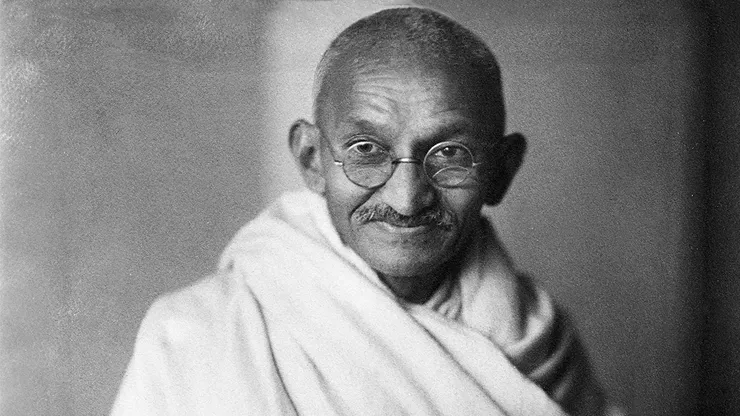In a world that seems to be increasingly driven by individualism, consumerism, and the pursuit of power, the concept of , as envisioned by Mahatma Gandhi, offers a refreshing alternative. Swaraj, meaning self-rule or self-governance, was not just a political ideology for Gandhi but also a way of life. It was a vision of a society that values simplicity, humility, and collective well-being over materialistic pursuits.
Gandhi’s concept of was deeply rooted in his belief in the inherent goodness and potential of individuals. He believed that every human being has the capacity to govern themselves and make decisions that are not only beneficial for themselves but also for the greater good. was about empowering individuals to take control of their own lives, communities, and destinies.
For Gandhi, also meant a rejection of the oppressive colonial rule that India was subjected to at the time. But his vision went beyond just replacing foreign rule with Indian rule. He emphasized that is not just about changing faces in power but about transforming the mindset of the people and the system as a whole. It was about eradicating social evils such as untouchability, discrimination, and inequality. Gandhi believed that could only be achieved through non-violence, self-sufficiency, and the establishment of an egalitarian society.

One of the key components of Gandhi’s vision of was self-sufficiency or, as he termed it, “Swaraj in the sphere of economics.” Gandhi advocated for a decentralized, village-centered economy, where each community takes responsibility for its own needs. He believed that industrialization and unbridled capitalism were detrimental to the well-being of individuals and communities, as they perpetuated inequality and exploitation. Instead, he promoted local production, cottage industries, and a sustainable way of living.
You can read our another post on Twin Temple of Gandharadi: A Marvel of Ancient Architecture
Another central aspect of was self-discipline. Gandhi believed that true freedom could only be achieved when individuals exercise self-control and lead disciplined lives. He emphasized the need for simplicity, frugality, and restraint in our desires and actions. He saw as an opportunity for individuals to liberate themselves from the tyranny of materialistic desires and ego-driven pursuits.
Gandhi’s vision of may seem idealistic or impractical in today’s interconnected and globalized world. However, the principles underlying – non-violence, self-governance, and the pursuit of the greater good – remain relevant and necessary for addressing the challenges we face today. is not a fixed destination but a journey towards a more just, peaceful, and sustainable world.
To embody the spirit of Swaraj, we can start by embracing simplicity and minimalism in our own lives, reducing our dependency on consumerism and materialistic pursuits. We can actively engage in our communities, participate in democratic processes, and contribute to collective decision-making. We can prioritize compassion and empathy, treating all individuals with respect and dignity.
Ultimately, Swaraj is a call to reclaim our power as individuals and as a collective. It is a reminder that we have the ability to shape our own destiny, to build a world that is more equitable, compassionate, and sustainable. By embracing the Gandhian vision of , we can strive for a better future, one that is not solely driven by personal gain but by the well-being of all.
More: Wanted to download Odishashop.com visit here
Write A FAQ For Swaraj: The Gandhian Vision
What is “Swaraj: The Gandhian Vision” all about?
“Swaraj: The Gandhian Vision” is a book that explores the concept of “Swaraj” as envisioned by Mahatma Gandhi. It delves into the philosophical, social, and political dimensions of Gandhi’s idea of self-rule and examines its relevance in today’s world.
How does the book discuss Gandhi’s vision of “Swaraj”?
The book thoroughly examines Gandhi’s writings, speeches, and actions to present a comprehensive understanding of his vision of “Swaraj.” It analyzes Gandhi’s emphasis on individual and collective self-discipline, non-violence, and decentralized governance as key pillars of Swaraj.
Does the book discuss the practical implementation of Gandhi’s vision?
Yes, the book provides insights into how Gandhi envisioned practical implementation of Swaraj at different levels, be it in the personal sphere, village communities, or the larger nation. It explores Gandhi’s concepts of constructive work, self-sufficiency, and non-cooperation with unjust systems.
Is “Swaraj: The Gandhian Vision” purely a historical analysis?
While the book lays a strong foundation by exploring Gandhi’s historical context and his life, it goes beyond mere historical analysis. It connects Gandhi’s concepts of Swaraj with contemporary issues and challenges, encouraging readers to reflect on how these ideas can be applied in present-day contexts.
Who is the target audience for this book?
“Swaraj: The Gandhian Vision” is a valuable resource for anyone interested in understanding Gandhi’s philosophy, social change, or political theory. It is equally relevant for scholars, activists, policymakers, and individuals seeking personal growth or alternative approaches to governance and societal transformation.
